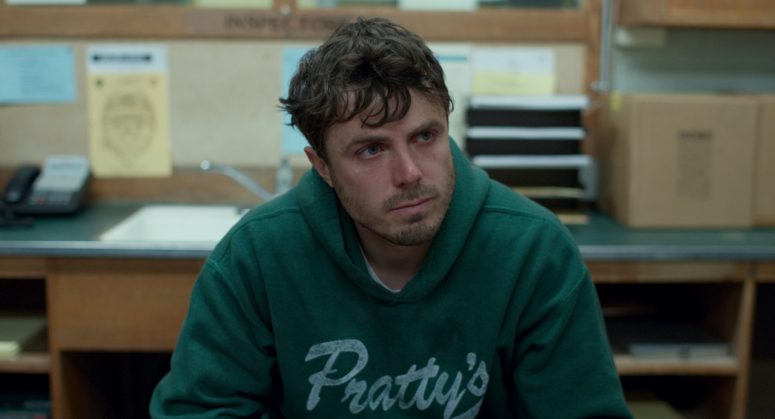
Courtesy Amazon Studios
My wife and I recently watched Manchester by the Sea. It’s a beautifully-acted but heart-wrenching story about a Boston man (played by Casey Affleck) that is left utterly devastated and largely alone after a careless act and some horrifying bad luck. In fact, it’s one of the saddest movies I’ve seen in years.
Although I appreciated the film, I forgot the importance of tragedy while exiting the theater. “For someone who is living in a comedy, is there any value in being reminded that life sucks sometimes?” I asked myself. “Is there any harm in solely watching movies with happy endings?”
With the help of the internet, this is what I learned: Continue reading…
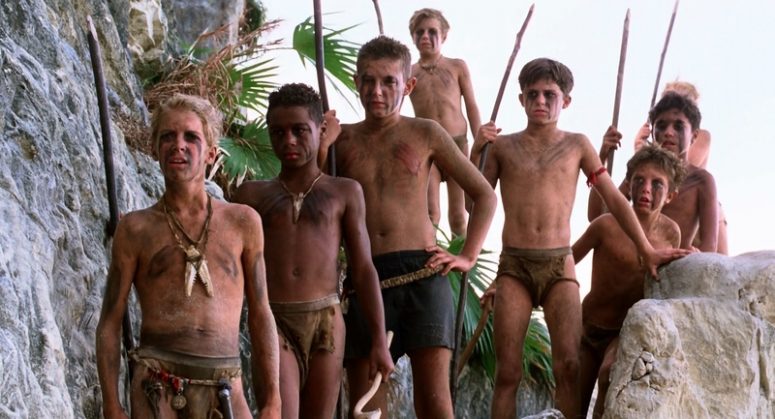
Courtesy Columbia Pictures
Lord of the Flies by EL Epstein was one of my favorite books I read in my adolescence. It’s shocking, sad, and discouraging.
It’s also entirely made up and based on the fear-mongering belief that humans will basically eat each other when the going gets rough. Many humans often think like that in times of uncertainty—global quarantines very much included.
But “it’s time we told a different kind of story,” argues Rutger Bregman, who researched the reality of shipwrecked isolation and found that the vast majority of evidence suggests that adolescent boys would act very differently. In fact, they would largely cooperate and thrive instead of succumbing to war, murder, and anarchy.
“Readers were still skeptical,” Bregman reported, however. So he searched high and low for a real-life example of what shipwrecked boys might actually do. After sleuthing on the internet, he discovered a story of six boys from Tonga in 1965 who were shipwrecked on a Polynesian island for 15 months. He went and visited one of the survivors and heard a detailed and inspiring true story. The short of it: when the boys were finally rescued by a passing ship on September 11, 1966, a physician was “astonished by their mulled physiques” and overall health.
“The real Lord of the Flies is a tale of friendship and loyalty,” Bregman concludes. “One that illustrates how much stronger we are if we can lean on each other.”
Need more proof? Look how far humanity has come over the last 2000, 200, 100, or even 10 years! If the haters, pessimists, and naysayers were actually right, we would have all died along time ago. 💪
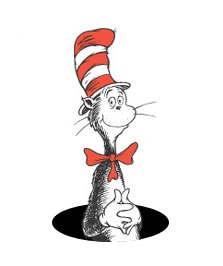 A recent quote my wife found:
A recent quote my wife found:
“Be who you are and say what you feel because those who mind don’t matter and those who matter don’t mind.”
Not only is Dr. Seuss a fun read for kids, he’s wonderfully metaphoric when read by an adult.
I’ve been in awe of his work while re-reading it to my kids.
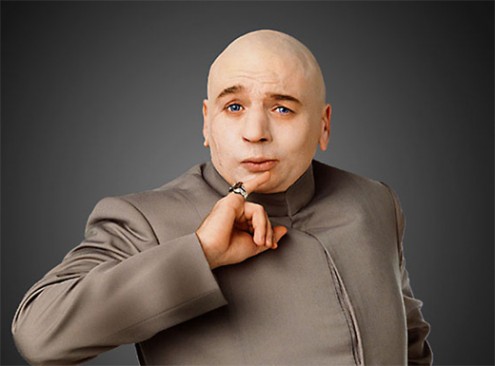
I read Nineteen Eighty-Four this month for the first time. What struck me most about the book was not George Orwell’s impracticable vision of totalitarianism. (On the contrary, there are “less arduous and wasteful ways” of satisfying a government’s lust for power.) Rather, it’s how overwhelming the antagonist is. For example, consider this “you can’t stop us” speech given by Comrade O’brien, as he tortures our anti-hero Winston into submission: Continue reading…
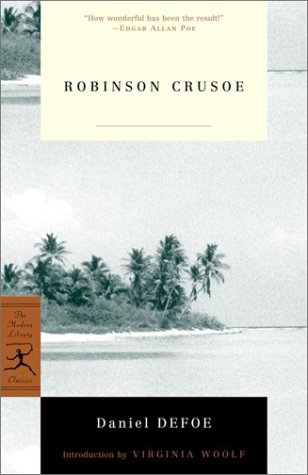 At the recommendation of a long-time Smooth Harold reader (thanks, Nic), I finished Robinson Crusoe over the weekend. Regarded as the first novel written in English and first published in 1719, it’s a story about high-sea adventure, shipwrecks, castaways, gratitude, hard work, and international intrigue.
At the recommendation of a long-time Smooth Harold reader (thanks, Nic), I finished Robinson Crusoe over the weekend. Regarded as the first novel written in English and first published in 1719, it’s a story about high-sea adventure, shipwrecks, castaways, gratitude, hard work, and international intrigue.
What I like most about the book is Defoe’s poetic commentary on human behavior. For example, after Robinson nearly drowned at sea for the first time, he quickly swore off his selfish ways and committed himself to God, before changing his mind after disaster had been averted: Continue reading…
After a seven month hiatus (having only read 4-5 books last year), I caught the reading bug again. To stay the course, here are a dozen classics I’d like to read in 2009:
Anna Karenina
1984
War and Peace
The Adventures of Huck Finn
In Search of Lost Time
The Stories of Anton Chekhov
Middlemarch
Moby Dick
The Catcher in the Rye
For Whom the Bell Tolls
I’m currently reading Out of Africa and plan to re-read the following: Hamlet, The Great Gatsby, The Old Man and the Sea, and To Kill a Mockingbird (I remember liking them in high school). Off a recommendation from a well-read friend, I’m also excited to read Water for Elephants and The Kite Runner. And for cheap thrills, I’m going to read The Firm and The Rainmaker, two Grisham novels I missed.
Anything I should add?
UPDATE: Robinson Crusoe, The Count of Monte Cristo, Of Mice and Men, Measure for Measure, the complete Jane Austen collection, Man’s Search for Meaning.
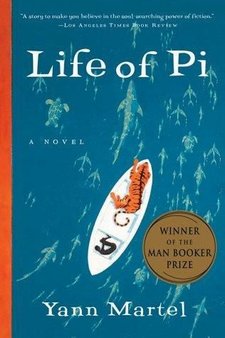 I finished reading the popular Life of Pi last night. In sum, it’s a clever endorsement for zoos, storytelling, and the existence of God, either allegorically or literally.
I finished reading the popular Life of Pi last night. In sum, it’s a clever endorsement for zoos, storytelling, and the existence of God, either allegorically or literally.
Author Yann Martel’s use of metaphors is inspired and makes me feel inadequate as a writer when it comes to creatively describing objects, emotions, and experiences. For that, I was in awe — and laughing at times. Overall, I give the book four stars out of five for dragging a little in the first and second acts. Chapter 97 is my favorite.
If I were a disoriented high school or college student, and were forced to answer the following discussion guide questions for a homework assignment, these would be my answers:
Continue reading…
Though I’m embarrassed to say it, especially given that my livelihood (read: writing) depends on it, I’ve seemingly broken up with nutritious reading this year. Without noticing, I’ve gone more than seven months without reading a single book (okay, maybe one). I’m not even sure why.
I still read junk literature on a daily basis (i.e. online articles), but those don’t count. I need more Hemmingway, Austen, and Potok in my diet. Unfortunately, I have no desire to open a book, due to a prolonged state of atrophy and laziness. I want to fall in love again and admire my wife and colleagues who remain passionate about the medium.
Have you ever broken up with books? If so, how did you rekindle the fire?



 A recent quote my wife found:
A recent quote my wife found:
 At
At 